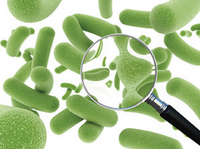








Probiotics are microorganisms that are believed to provide health benefits when consumed.The term probiotic is currently used to name ingested microorganisms associated with beneficial effects to humans and animals.Introduction of the concept is generally attributed to Nobel Prize recipient Elie Metchnikoff, who in 1907 suggested that "the dependence of the intestinal microbes on the food makes it possible to adopt measures to modify the flora in our bodies and to replace the harmful microbes by useful microbes".A significant expansion of the potential market for probiotics has led to higher requirements for scientific substantiation of putative beneficial effects conferred by the microorganisms.Studies on the medical benefits of probiotics have yet to reveal a cause-effect relationship, and their medical effectiveness has yet to be conclusively proven for most of the studies conducted thus far.
Ilya Ilyich Mechnikov
Probiotics have received renewed attention recently from product manufacturers, research studies and consumers. The history of probiotics can be traced back to the first use of cheese and fermented products, that were well known to the Greeks and Romans who recommended their consumption.The fermentation of dairy foods represents one of the oldest techniques for food preservation.
The original modern hypothesis of the positive role played by certain bacteria was first introduced by Russian scientist and Nobel laureate Élie Metchnikoff, who in 1907 suggested that it would be possible to modify the gut flora and to replace harmful microbes with useful microbes.Metchnikoff, at that time a professor at the Pasteur Institute in Paris, proposed the hypothesis that the aging process results from the activity of putrefactive (proteolytic) microbes producing toxic substances in the large bowel. Proteolytic bacteria such as clostridia, which are part of the normal gut flora, produce toxic substances including phenols, indols and ammonia from the digestion of proteins. According to Metchnikoff these compounds were responsible for what he called "intestinal auto-intoxication", which would cause the physical changes associated with old age.
Metchnikoff s Scientific Work
Metchnikoff s scientific work deals with a number of areas in biology and medicine. From 1866 to 1886 he worked on problems of comparative and evolutionary embryology; with A. O. Kovalevskii, he was one of the founders of that school. He proposed the phagocyte theory, an original theory for the origin of multicellular animals. His discovery of the phenomenon of phagocytosis in 1882 (outlined in a report in 1883 to the Seventh Congress of Russian Naturalists and Physicians in Odessa) became the basis for his development of comparative inflammation pathology (1892) and for his phagocytic theory of immunity (Immunity to Infectious Diseases, 1901; Nobel Prize, 1908, with P. Ehrlich). Metchnikoff s numerous works on bacteriology are devoted to the epidemiology of cholera, typhoid fever, tuberculosis, and other infectious diseases. In 1903, with E. Roux, he was the first to produce syphilis experimentally in monkeys.